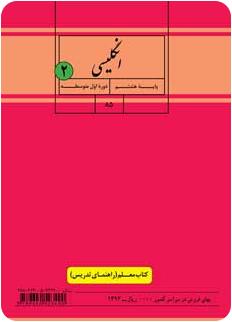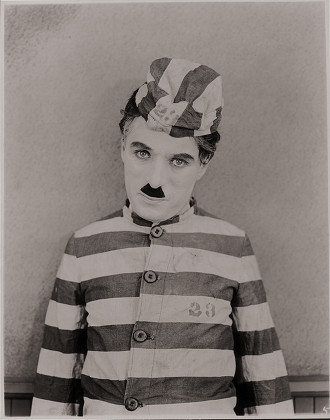زندگینامه توماس اندرس
بازدید: 320

Thomas Anders
Real Name:
Bernd Weidung
Profile:
Thomas Anders is a German singer / producer / songwriter (born on March 1st, 1963 as Bernd Weidung in Münstermaifeld / Eifel).
His debut on stage was at the age 7. At the age of 17 Anders won a music competition at the radio station "Radio Luxembourg," and was offered a record deal with CBS. In 1980 he released his first single: "Judy" with producer Daniel David (2). Later in the same year Anders went on tour across Germany. In 1981 Anders had his debut on TV with his latest single. In 1982 Anders was signed to Hansa (later BMG) and worked with producer G.G. Anderson.
In 1983 a young producer Dieter Bohlen invited Anders to record the German version of "Pick Up Phone" by F.R. David. Bohlen was enthusiastic about Anders' voice. As a result they produced several German singles and peaked at 16 on the German Top 20 with "Wovon träumst du denn?". In the end of 1984, Dieter Bohlen came up with an idea to record a song in English: "You're My Heart, You're My Soul." Thus, Modern Talking was born. Their first single climbed up to the top of the charts across Europe within 6 weeks. A string of No.1-hits followed such as: "You Can Win If You Want," "Cheri Cheri Lady", "Brother Louie" (number 4 in the UK-Charts) and "Atlantis Is Calling". Soon, Modern Talking was the most successful German pop-duo ever, selling 7 Double Platinum albums, 11 Platinum albums and 4 Gold albums worldwide.
In the end of 1987 Anders and Bohlen broke up. Anders moved to California, USA where he met some world-famous producers to discuss his solo career. About that time he wrote a song, "I Can Never Let You Go," for Engelbert Humperdinck. Anders also started the Man-X (2) project which supported him during his world tour as "The Thomas Anders show" in 1987-89.
Thomas Anders received a contract with Warner and recorded two albums in London. In 1989 with a new image and a new sound Anders released his first solo-album "Different". With the single "Love Of My Own" Anders reached number 24 on the German pop-charts. In 1991 Anders recorded his second album "Whispers", featuring vocals by Judie Tzuke.
Anders switched to Polydor (now Universal) and kept on recording his albums in the USA. In 1992 he issued "Down On Sunset", featuring a duet with [Invalid Artist]). In 1993 he recorded "When Will I See You Again", featuring a duet with Three Degrees). In 1994 Anders released his Latin-pop album "Barcos de Cristal" in Spanish for the US market. In 1995 Anders recorded a soul-album with the Pointer Sisters called "Souled".
In 1998 Modern Talking re-launched themselves in Europe with their album "Back For Good" which achieved the biggest comeback ever witnessed in the history of pop-music. The album remained at the top of the German charts for over 20 weeks and has been released in over 50 countries.
After the 2nd Modern Talking break-up three more Anders' albums were out. Lately he has been working on the Anders | Fahrenkrog project for some time.
His debut on stage was at the age 7. At the age of 17 Anders won a music competition at the radio station "Radio Luxembourg," and was offered a record deal with CBS. In 1980 he released his first single: "Judy" with producer Daniel David (2). Later in the same year Anders went on tour across Germany. In 1981 Anders had his debut on TV with his latest single. In 1982 Anders was signed to Hansa (later BMG) and worked with producer G.G. Anderson.
In 1983 a young producer Dieter Bohlen invited Anders to record the German version of "Pick Up Phone" by F.R. David. Bohlen was enthusiastic about Anders' voice. As a result they produced several German singles and peaked at 16 on the German Top 20 with "Wovon träumst du denn?". In the end of 1984, Dieter Bohlen came up with an idea to record a song in English: "You're My Heart, You're My Soul." Thus, Modern Talking was born. Their first single climbed up to the top of the charts across Europe within 6 weeks. A string of No.1-hits followed such as: "You Can Win If You Want," "Cheri Cheri Lady", "Brother Louie" (number 4 in the UK-Charts) and "Atlantis Is Calling". Soon, Modern Talking was the most successful German pop-duo ever, selling 7 Double Platinum albums, 11 Platinum albums and 4 Gold albums worldwide.
In the end of 1987 Anders and Bohlen broke up. Anders moved to California, USA where he met some world-famous producers to discuss his solo career. About that time he wrote a song, "I Can Never Let You Go," for Engelbert Humperdinck. Anders also started the Man-X (2) project which supported him during his world tour as "The Thomas Anders show" in 1987-89.
Thomas Anders received a contract with Warner and recorded two albums in London. In 1989 with a new image and a new sound Anders released his first solo-album "Different". With the single "Love Of My Own" Anders reached number 24 on the German pop-charts. In 1991 Anders recorded his second album "Whispers", featuring vocals by Judie Tzuke.
Anders switched to Polydor (now Universal) and kept on recording his albums in the USA. In 1992 he issued "Down On Sunset", featuring a duet with [Invalid Artist]). In 1993 he recorded "When Will I See You Again", featuring a duet with Three Degrees). In 1994 Anders released his Latin-pop album "Barcos de Cristal" in Spanish for the US market. In 1995 Anders recorded a soul-album with the Pointer Sisters called "Souled".
In 1998 Modern Talking re-launched themselves in Europe with their album "Back For Good" which achieved the biggest comeback ever witnessed in the history of pop-music. The album remained at the top of the German charts for over 20 weeks and has been released in over 50 countries.
After the 2nd Modern Talking break-up three more Anders' albums were out. Lately he has been working on the Anders | Fahrenkrog project for some time.
Sites:
Aliases:
In Groups:
Variations:
Viewing All | Thomas Anders
این مطلب در تاریخ: پنج شنبه 12 فروردين 1395 ساعت: 20:59 منتشر شده است
برچسب ها : زندگینامه توماس اندرس,












